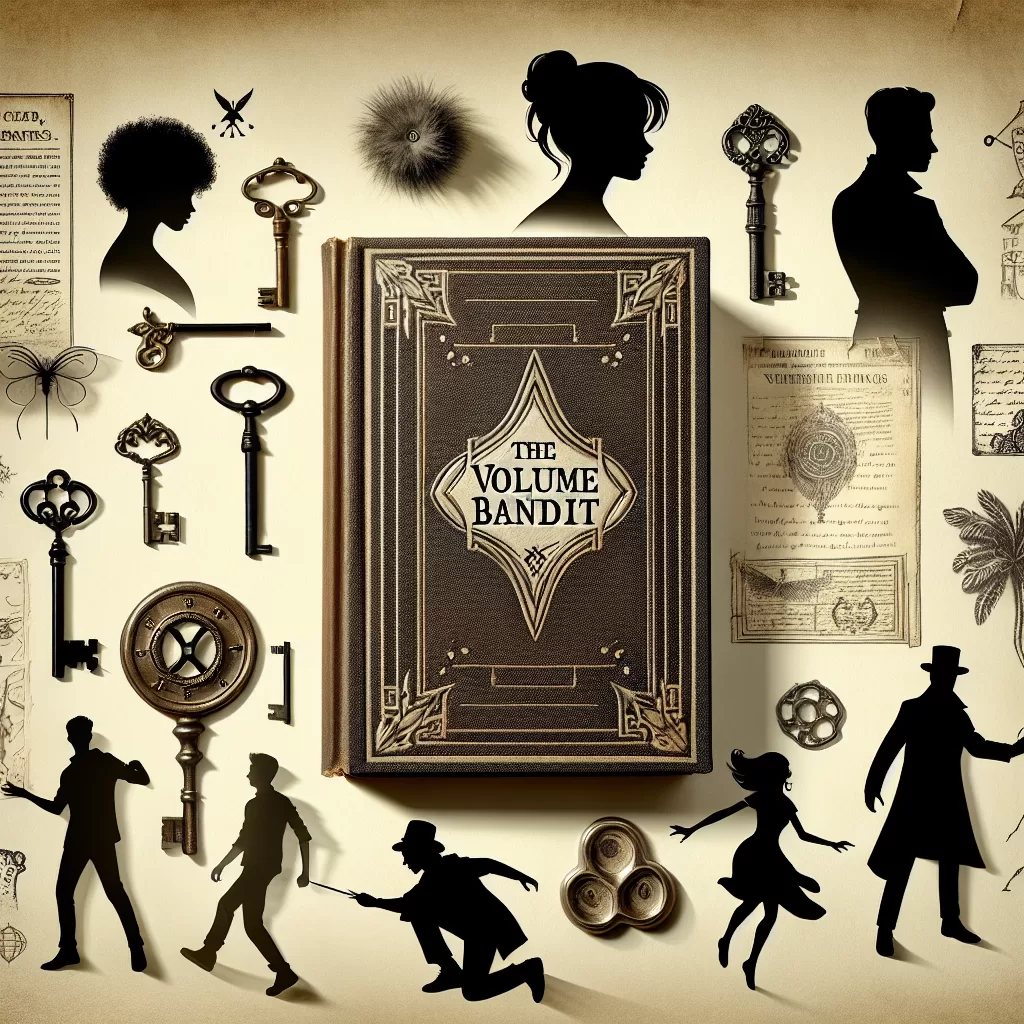-
Obsah
“The Book Thief,” written by Markus Zusak, is a poignant novel set in Nazi Germany that follows the life of a young girl named Liesel Meminger. The story is narrated by Death, who provides a unique perspective on the events unfolding during World War II. Liesel, who is sent to live with foster parents Hans and Rosa Hubermann, finds solace in stealing books and sharing them with others, including her neighbors and a Jewish man hiding in their basement, Max Vandenburg. The novel explores themes of mortality, the power of words, and the resilience of the human spirit amidst the horrors of war. Key characters include Liesel, whose love for literature drives the narrative; Hans, her kind-hearted foster father; Rosa, her tough but caring foster mother; and Max, whose friendship with Liesel highlights the importance of compassion and hope in dark times. Through its rich storytelling and deep emotional resonance, “The Book Thief” offers a profound reflection on the impact of words and the enduring strength of love and friendship.
Overview of The Book Thief: A Summary
“The Book Thief,” a novel by Markus Zusak, is set in Nazi Germany during World War II and is narrated by Death, a unique choice that adds a profound layer of depth to the story. The narrative revolves around a young girl named Liesel Meminger, who is sent to live with foster parents, Hans and Rosa Hubermann, in the small town of Molching. Liesel’s journey begins with tragedy, as she witnesses the death of her brother during their journey to their new home. This traumatic event leads her to steal her first book, “The Gravedigger’s Handbook,” from the cemetery where her brother is buried. This act of theft marks the beginning of her relationship with words and literature, which becomes a source of solace and empowerment in a world filled with chaos and despair.
As Liesel settles into her new life, she grapples with the harsh realities of her environment, including the oppressive regime of the Nazis and the constant threat of war. Her foster father, Hans, is a kind-hearted man who teaches her to read, nurturing her love for books. In contrast, Rosa, her foster mother, is stern and often harsh, yet her tough love provides Liesel with a sense of stability. The Hubermanns’ home becomes a refuge for Liesel, where she finds comfort in the stories she reads and the bonds she forms with those around her.
One of the most significant relationships in Liesel’s life is with Max Vandenburg, a Jewish man who seeks refuge in the Hubermanns’ basement. Max’s presence introduces themes of friendship, sacrifice, and the impact of war on individuals. As Liesel and Max share stories and dreams, their bond deepens, illustrating the power of words to connect people even in the darkest of times. Through their interactions, Liesel learns about the harsh realities of the world outside her home, yet she also discovers the strength of human resilience and compassion.
The narrative unfolds against the backdrop of World War II, highlighting the impact of the war on the lives of ordinary people. Liesel’s experiences reflect the struggles faced by many during this tumultuous period, including the loss of loved ones, the fear of persecution, and the longing for freedom. As she continues to steal books, Liesel not only seeks to fill the void left by her brother’s death but also to assert her identity in a world that seeks to suppress individuality and creativity. Each book she acquires becomes a symbol of hope and resistance, allowing her to escape the grim realities of her life, if only for a moment.
As the story progresses, the consequences of war become increasingly evident, culminating in a series of tragic events that profoundly affect Liesel and those she loves. The narrative’s poignant exploration of loss, love, and the enduring power of words resonates deeply, leaving readers with a sense of both sorrow and hope. Ultimately, “The Book Thief” serves as a testament to the resilience of the human spirit, illustrating how even in the face of unimaginable adversity, the act of storytelling can provide solace and strength. Through Liesel’s journey, Zusak masterfully conveys the importance of literature as a means of understanding and coping with the complexities of life, making “The Book Thief” a timeless and impactful read.
Major Themes in The Book Thief
In Markus Zusak’s poignant novel, “The Book Thief,” several major themes intertwine to create a rich tapestry of human experience during one of history’s darkest periods. One of the most prominent themes is the power of words and storytelling. The narrative is framed by Death, who serves as both a character and a narrator, emphasizing the significance of language in shaping human experience. Words have the ability to inspire, heal, and destroy, and throughout the novel, characters wield language as a tool for both resistance and connection. Liesel Meminger, the protagonist, discovers the transformative power of words as she learns to read and write, ultimately using her newfound skills to cope with the harsh realities of life in Nazi Germany. Her theft of books symbolizes her rebellion against oppression and her desire to reclaim her agency in a world that seeks to silence her.
Another significant theme is the exploration of mortality and the human condition. Death, as the narrator, provides a unique perspective on life and death, often reflecting on the fragility of existence. The novel is set against the backdrop of World War II, a time when death looms large and is an ever-present reality for the characters. Through Liesel’s experiences, readers are confronted with the inevitability of loss and the impact it has on those left behind. The relationships she forms with characters such as Hans and Rosa Hubermann, as well as Max Vandenburg, highlight the importance of love and companionship in the face of mortality. These connections serve as a source of strength and resilience, illustrating how human bonds can provide solace amid suffering.
Furthermore, the theme of friendship and the importance of community emerges as a vital aspect of the narrative. Liesel’s friendships with Rudy Steiner and Max Vandenburg illustrate the power of solidarity in times of adversity. Their relationships are characterized by loyalty, support, and shared experiences, which help them navigate the challenges posed by their environment. The novel emphasizes that even in the darkest of times, the human spirit can find ways to connect and uplift one another. This theme is particularly poignant as it underscores the idea that community can serve as a refuge from the chaos of the outside world, providing individuals with a sense of belonging and purpose.
Additionally, the theme of sacrifice is woven throughout the story, as characters make difficult choices for the sake of others. Hans Hubermann’s decision to hide Max, a Jewish man, in his home exemplifies the moral complexities faced by individuals during the Holocaust. His actions reflect a profound sense of empathy and courage, highlighting the theme that true humanity often requires personal sacrifice. This theme resonates deeply, as it challenges readers to consider the moral implications of their own choices in the face of injustice.
In conclusion, “The Book Thief” masterfully explores themes of the power of words, mortality, friendship, and sacrifice, all set against the harrowing backdrop of World War II. Through Liesel’s journey, Zusak invites readers to reflect on the resilience of the human spirit and the enduring impact of love and connection. The novel serves as a poignant reminder that even in the face of overwhelming darkness, the light of human compassion and creativity can shine through, offering hope and solace to those who seek it.
Character Analysis: Liesel Meminger
Liesel Meminger, the protagonist of Markus Zusak’s “The Book Thief,” is a complex character whose journey encapsulates the themes of loss, resilience, and the transformative power of words. At the outset of the novel, Liesel is introduced as a young girl grappling with the trauma of losing her brother and being separated from her mother. This early loss profoundly shapes her character, instilling in her a deep sense of longing and a desire for connection. As she arrives in the small town of Molching, Germany, to live with her foster parents, Hans and Rosa Hubermann, Liesel’s initial silence speaks volumes about her emotional state. Her struggle to adapt to her new environment is marked by a profound sense of isolation, yet it is through her relationships that she begins to find her voice.
As the narrative unfolds, Liesel’s character evolves significantly. Her bond with Hans, who patiently teaches her to read, becomes a cornerstone of her development. This relationship not only provides her with a sense of security but also ignites her passion for literature. The act of stealing books, which initially stems from a desire to possess something beautiful in a world filled with despair, transforms into a profound appreciation for the written word. Each book she acquires represents not just a physical object but a means of escape and empowerment. Through reading, Liesel discovers the ability to articulate her thoughts and feelings, allowing her to navigate the complexities of her world.
Moreover, Liesel’s friendship with Rudy Steiner further enriches her character. Rudy, with his unwavering loyalty and mischievous spirit, serves as a source of comfort and companionship for Liesel. Their shared experiences, from stealing apples to dreaming of running alongside Jesse Owens, highlight the innocence of childhood amidst the harsh realities of Nazi Germany. This friendship becomes a vital aspect of Liesel’s life, providing her with moments of joy and normalcy in an otherwise tumultuous environment. However, as the story progresses, the impact of war becomes increasingly evident, and Liesel is forced to confront the fragility of her relationships and the inevitability of loss.
The theme of mortality is intricately woven into Liesel’s character arc. As she witnesses the suffering and death of those she loves, including her foster parents and Rudy, Liesel grapples with the harsh truths of life. These experiences deepen her understanding of love and loss, ultimately shaping her identity. In the face of such adversity, Liesel’s resilience shines through. She learns to channel her grief into her love for words, using storytelling as a means to cope with her pain. This transformation underscores the novel’s central message about the power of language to heal and connect individuals, even in the darkest of times.
In conclusion, Liesel Meminger is a richly developed character whose journey reflects the broader themes of “The Book Thief.” Her evolution from a traumatized girl to a resilient young woman illustrates the profound impact of love, friendship, and literature in the face of adversity. Through her experiences, Liesel embodies the idea that even in a world marked by suffering, the human spirit can find solace and strength through the written word. As readers accompany Liesel on her journey, they are reminded of the enduring power of stories to illuminate the human experience, making her character not only relatable but also emblematic of the resilience inherent in us all.
The Role of Death as a Narrator
In Markus Zusak’s novel “The Book Thief,” the choice of Death as the narrator serves as a profound and thought-provoking device that shapes the reader’s understanding of the story and its themes. Death, personified with a unique blend of detachment and empathy, offers a perspective that transcends the limitations of human experience. This unconventional narrative choice allows for a deeper exploration of mortality, the human condition, and the impact of war on individuals and society.
From the outset, Death introduces itself with a candid acknowledgment of its role in the lives of the characters, particularly during the tumultuous period of World War II in Nazi Germany. This omniscient viewpoint provides a sense of inevitability, as Death reveals its familiarity with the souls it encounters. By presenting itself as a character that is both present and removed, Zusak invites readers to contemplate the nature of existence and the fragility of life. Death’s observations are often laced with a dark humor that contrasts sharply with the grim realities of the time, creating a poignant juxtaposition that enhances the emotional weight of the narrative.
As the story unfolds, Death’s insights into the lives of the characters, particularly Liesel Meminger, the titular book thief, reveal the profound connections between life and death. Liesel’s journey, marked by loss and resilience, is intricately woven into the fabric of the narrative, and Death’s reflections on her experiences highlight the significance of words and storytelling as a means of coping with trauma. Through Liesel’s love for books, readers witness the transformative power of literature, which serves as both an escape and a means of understanding the world around her. Death’s commentary on Liesel’s relationship with words underscores the theme of the redemptive nature of storytelling, suggesting that even in the darkest of times, narratives can provide solace and hope.
Moreover, Death’s role as a narrator allows for a broader examination of the moral complexities faced by individuals during wartime. The characters in “The Book Thief” grapple with difficult choices, and Death’s observations often prompt readers to reflect on the nature of humanity in the face of adversity. For instance, Hans Hubermann’s decision to shelter a Jewish man, Max Vandenburg, illustrates the moral courage required to stand against injustice. Death’s perspective on these choices emphasizes the idea that acts of kindness and bravery can shine brightly, even amidst the pervasive darkness of war.
In addition to its thematic richness, Death’s narration also serves to create a sense of distance that allows readers to process the harrowing events of the story. By framing the narrative through the lens of an entity that exists beyond human emotions, Zusak enables readers to confront the harsh realities of life and death without becoming overwhelmed by despair. This narrative distance fosters a contemplative space where readers can engage with the complexities of the characters’ experiences and the broader historical context.
Ultimately, the role of Death as a narrator in “The Book Thief” is a masterful choice that enriches the narrative and deepens the exploration of its themes. Through Death’s unique perspective, readers are invited to reflect on the nature of existence, the power of words, and the moral dilemmas faced by individuals in times of crisis. This innovative approach not only enhances the emotional resonance of the story but also encourages a profound engagement with the human experience, making “The Book Thief” a timeless exploration of life, death, and the enduring power of storytelling.
Friendship and Loyalty in The Book Thief
In Markus Zusak’s poignant novel, “The Book Thief,” the themes of friendship and loyalty emerge as central elements that shape the narrative and the characters’ experiences during the harrowing times of World War II in Nazi Germany. The relationships formed in this tumultuous setting not only provide solace and support but also highlight the resilience of the human spirit in the face of adversity. At the heart of the story is Liesel Meminger, a young girl whose journey of self-discovery is intricately woven with the bonds she forges with those around her.
Liesel’s friendship with Rudy Steiner serves as a prime example of the innocence and loyalty that can flourish even in the darkest of times. Their playful camaraderie, characterized by shared adventures and a deep understanding of one another, illustrates the power of friendship to provide comfort and joy amidst the chaos of war. Rudy’s unwavering loyalty to Liesel is evident in his willingness to stand by her side, whether it involves stealing apples or supporting her during moments of despair. This bond not only enriches Liesel’s life but also serves as a reminder of the importance of companionship in overcoming life’s challenges.
Moreover, the relationship between Liesel and her foster parents, Hans and Rosa Hubermann, further emphasizes the theme of loyalty. Hans, with his gentle demeanor and nurturing spirit, becomes a father figure to Liesel, offering her a safe haven in a world filled with uncertainty. His loyalty is demonstrated through his willingness to protect Liesel from the harsh realities of their environment, even as he risks his own safety. Rosa, though initially portrayed as stern and unyielding, reveals her own brand of loyalty as she gradually opens her heart to Liesel, showcasing the complexities of familial love. Together, the Hubermanns create a sense of belonging for Liesel, reinforcing the idea that loyalty can manifest in various forms, often transcending traditional definitions of family.
In addition to these relationships, the bond between Liesel and Max Vandenburg, the Jewish man hidden in the Hubermanns’ basement, further illustrates the theme of friendship and loyalty. Their connection is forged through shared experiences of suffering and loss, as both characters grapple with the impact of war on their lives. Liesel’s loyalty to Max is evident in her determination to protect him, even when the risks are high. Their friendship becomes a source of strength for both, as they find solace in each other’s company and share their love for words and stories. This relationship underscores the idea that true friendship can flourish even in the most dire circumstances, providing hope and resilience.
Ultimately, “The Book Thief” presents a rich tapestry of friendships that highlight the significance of loyalty in a world fraught with danger and despair. Through Liesel’s relationships with Rudy, the Hubermanns, and Max, Zusak illustrates how these bonds can serve as lifelines, offering comfort and strength in the face of overwhelming odds. The novel poignantly reminds readers that even in the darkest of times, the connections we forge with others can illuminate our paths, providing a sense of purpose and belonging. In this way, friendship and loyalty emerge not only as themes but as essential elements that define the human experience, resonating deeply within the hearts of those who navigate the complexities of life.
The Impact of War on Characters
In Markus Zusak’s “The Book Thief,” the impact of war on characters is profound and multifaceted, shaping their identities, relationships, and moral choices throughout the narrative. Set against the backdrop of Nazi Germany during World War II, the story unfolds through the eyes of Liesel Meminger, a young girl whose life is irrevocably altered by the chaos and brutality of war. As the narrative progresses, it becomes evident that the war serves not only as a historical context but also as a catalyst for character development and thematic exploration.
Liesel, the protagonist, experiences the devastating effects of war from an early age. Orphaned and separated from her family, she is taken in by Hans and Rosa Hubermann, who provide her with a semblance of stability amidst the turmoil. However, the war’s omnipresence looms over their household, influencing their daily lives and interactions. Hans, a compassionate and gentle man, embodies the struggle between personal morality and societal expectations. His decision to hide a Jewish man, Max Vandenburg, in their basement illustrates the moral dilemmas faced by individuals during wartime. This act of defiance against the oppressive regime highlights the theme of humanity in the face of dehumanization, showcasing how war can compel individuals to make choices that reflect their true values.
Rosa, on the other hand, presents a contrasting perspective. Initially portrayed as harsh and unyielding, her character gradually reveals the complexities of survival in a war-torn society. Her tough exterior masks a deep-seated vulnerability and a fierce love for her family. As the war progresses, Rosa’s character evolves, demonstrating how the pressures of conflict can lead to both resilience and emotional turmoil. The war forces her to confront her fears and insecurities, ultimately revealing the depth of her affection for Liesel and Hans. This transformation underscores the idea that war can strip away superficial layers, exposing the core of human emotion and connection.
Moreover, the character of Max Vandenburg serves as a poignant representation of the war’s impact on identity and belonging. As a Jewish man hiding from persecution, Max’s experiences reflect the broader suffering inflicted by the Nazi regime. His friendship with Liesel becomes a source of solace and hope, illustrating how human connections can flourish even in the darkest of times. Through their bond, Zusak emphasizes the power of words and storytelling as a means of resistance against the oppressive forces of war. Max’s struggle for survival and his desire to create a narrative of his own highlight the importance of agency and self-expression in the face of overwhelming adversity.
Additionally, the character of Death, who serves as the narrator, offers a unique perspective on the impact of war. Death’s observations reveal the senselessness of violence and the fragility of life, reminding readers of the inevitable consequences of conflict. Through Death’s lens, the narrative explores themes of loss, grief, and the enduring nature of memory. The war not only affects the characters’ physical existence but also leaves an indelible mark on their souls, shaping their perceptions of life and death.
In conclusion, “The Book Thief” intricately weaves the impact of war into the fabric of its characters’ lives, illustrating how conflict can transform individuals and relationships. Through Liesel, Hans, Rosa, Max, and even Death, Zusak explores the complexities of human emotion and morality in a world ravaged by violence. The characters’ journeys reflect the resilience of the human spirit, emphasizing that even amidst despair, hope and connection can prevail. Ultimately, the novel serves as a poignant reminder of the enduring effects of war on both personal and collective levels.
Symbolism of Books and Words in The Book Thief
In Markus Zusak’s poignant novel, “The Book Thief,” the symbolism of books and words plays a crucial role in conveying the themes of power, resistance, and the human experience during the harrowing times of World War II. The narrative, set in Nazi Germany, is uniquely narrated by Death, who provides a profound perspective on the events unfolding around the protagonist, Liesel Meminger. Liesel’s relationship with books and her burgeoning love for words serve as a lifeline amid the chaos and despair of her environment, illustrating how literature can offer solace and strength in the darkest of times.
From the outset, books symbolize not only knowledge and escape but also rebellion against oppressive regimes. Liesel’s journey begins with the theft of a book, “The Gravedigger’s Handbook,” which she acquires during her brother’s funeral. This act of theft is emblematic of her desire to reclaim agency in a world that seeks to strip her of it. As she learns to read, Liesel discovers the power of words to articulate her emotions and experiences, transforming her from a passive victim of circumstance into an active participant in her own narrative. This transformation underscores the idea that words can empower individuals, allowing them to assert their identities even in the face of overwhelming adversity.
Moreover, the act of reading becomes a form of resistance against the oppressive ideologies of the Nazi regime. Liesel’s love for books is shared with her foster father, Hans Hubermann, who teaches her to read and encourages her to find comfort in literature. Their shared moments of reading together not only strengthen their bond but also serve as a quiet rebellion against the censorship and propaganda that permeate their society. In this way, books become a sanctuary for Liesel and those around her, providing a refuge from the harsh realities of their lives. The stories she reads allow her to escape, if only temporarily, from the grim circumstances of war, illustrating how literature can serve as a means of survival.
Furthermore, the symbolism of words extends beyond mere escape; it also highlights the importance of storytelling as a means of preserving memory and humanity. Throughout the novel, Liesel’s experiences are intertwined with the stories she encounters, whether through the books she reads or the tales shared by those around her. The act of storytelling becomes a way to honor the lives lost during the war, ensuring that their memories endure despite the attempts to erase them. This theme is poignantly illustrated in the character of Max Vandenburg, a Jewish man hiding from the Nazis in the Hubermann’s basement. His creation of a story for Liesel, “The Standover Man,” serves as a testament to the power of words to forge connections and maintain hope in the face of despair.
In conclusion, the symbolism of books and words in “The Book Thief” is multifaceted, representing not only a means of escape and resistance but also a vital tool for preserving memory and humanity. Through Liesel’s journey, Zusak illustrates how literature can empower individuals, foster connections, and provide solace in times of turmoil. Ultimately, the novel serves as a poignant reminder of the enduring power of words to shape our understanding of the world and our place within it, even amidst the darkest chapters of history.
OTÁZKY A ODPOVĚDI
1. **What is the main plot of “The Book Thief”?**
– “The Book Thief” follows a young girl named Liesel Meminger in Nazi Germany who discovers the power of words and books while living with her foster parents, Hans and Rosa Hubermann, and befriending a Jewish man named Max Vandenburg, who hides in their basement.
2. **What are the central themes of “The Book Thief”?**
– Key themes include the power of words, the impact of war on humanity, the importance of friendship and love, and the struggle between good and evil.
3. **Who is the narrator of the story?**
– The narrator of “The Book Thief” is Death, who provides a unique perspective on the events and characters throughout the novel.
4. **What role does Liesel’s relationship with books play in the story?**
– Liesel’s relationship with books serves as a means of escape, a way to cope with her traumatic experiences, and a tool for rebellion against the oppressive regime of Nazi Germany.
5. **How does Liesel’s character develop throughout the novel?**
– Liesel evolves from a frightened, grieving child into a courageous and compassionate young girl who learns to find beauty and hope in the midst of despair.
6. **What is the significance of the character Max Vandenburg?**
– Max represents the struggle against oppression and the power of friendship. His relationship with Liesel highlights themes of sacrifice, loyalty, and the human spirit’s resilience.
7. **What is the overall message of “The Book Thief”?**
– The overall message emphasizes the importance of human connection, the transformative power of words, and the idea that even in the darkest times, love and kindness can prevail.”The Book Thief” by Markus Zusak is a poignant narrative set in Nazi Germany, centered around a young girl named Liesel Meminger who finds solace in stealing books and sharing them with others. The story explores themes of mortality, the power of words, and the impact of war on humanity. Key characters include Liesel, who embodies resilience and the quest for knowledge; Hans Hubermann, her compassionate foster father; and Max Vandenburg, a Jewish man hiding from the Nazis, who forms a deep bond with Liesel. The novel ultimately highlights the importance of storytelling and human connection in the face of adversity, illustrating how love and hope can endure even in the darkest of times.






